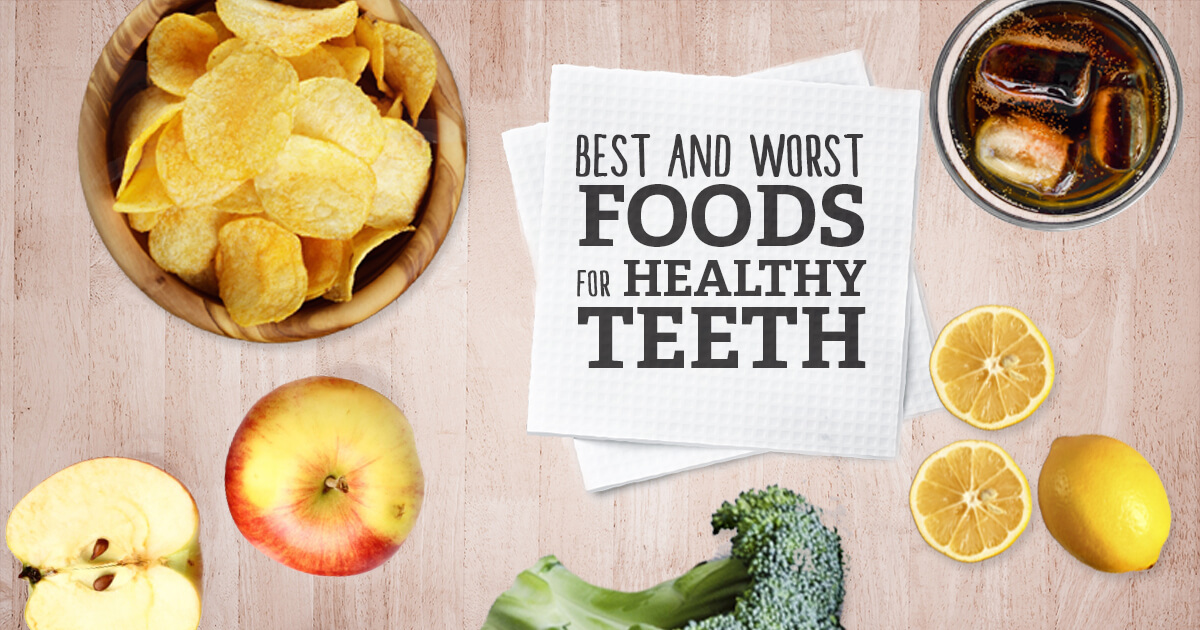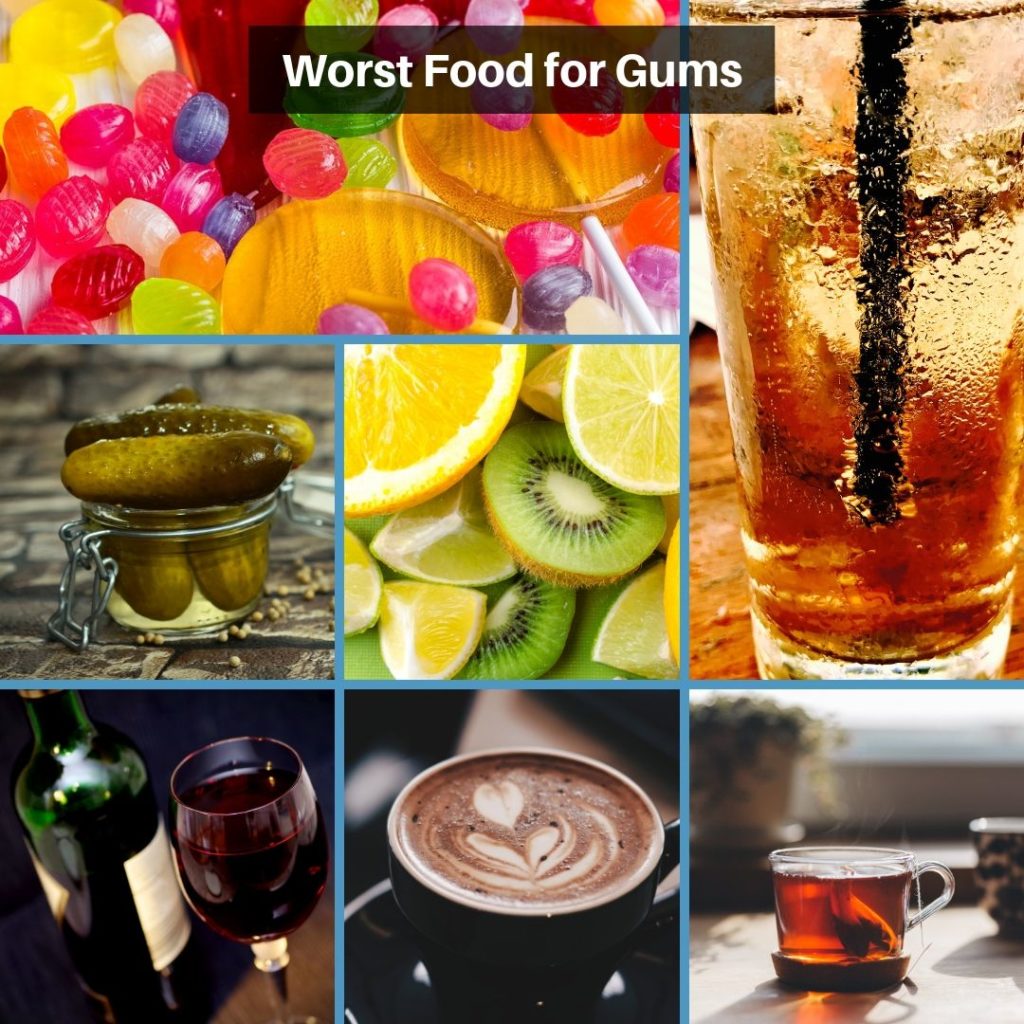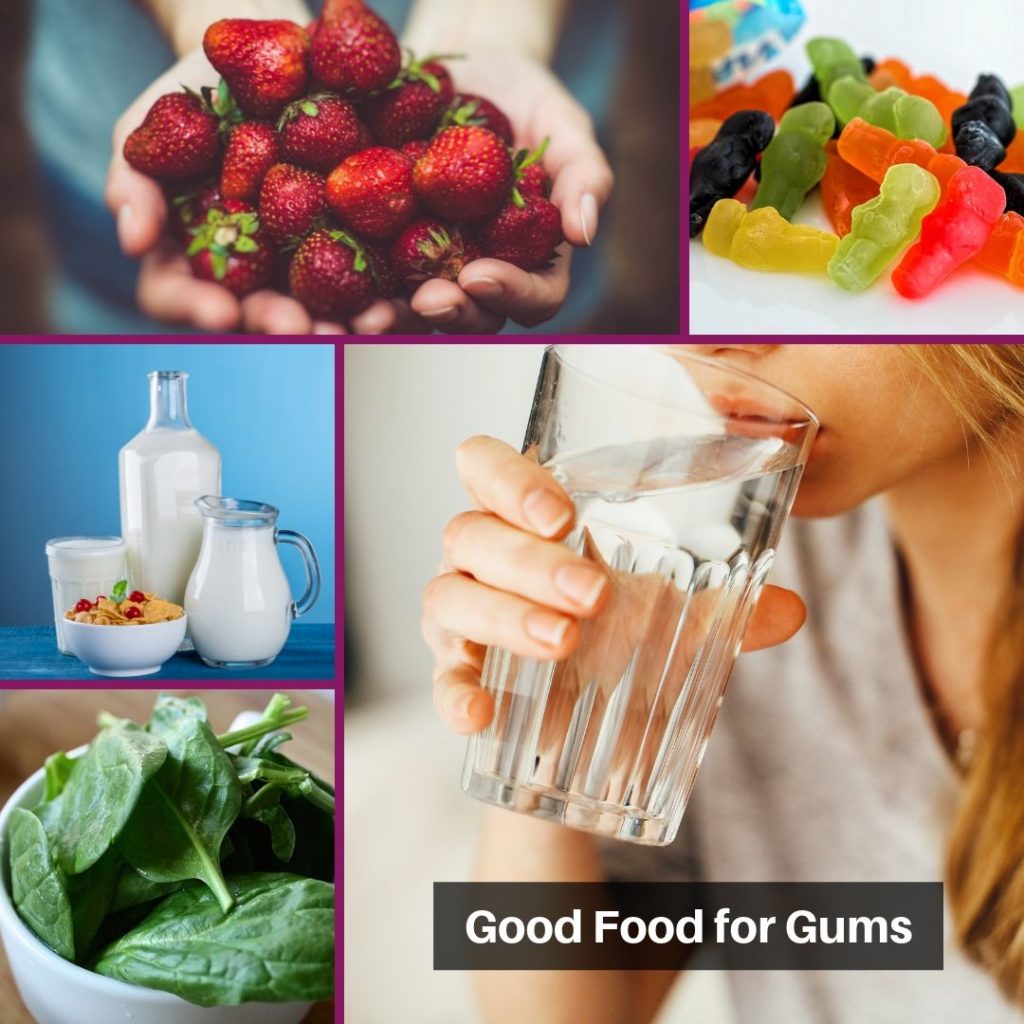Best and Worst Food for Healthy Gums

A healthy diet is an integral part of maintaining healthy teeth and gums. The vitamins and minerals found in whole foods help to protect your mouth against tooth decay and gum disease. Read on to learn about which foods to include in your diet and which foods to avoid.
A) Importance of Nutrition to Keep Your Gums Healthy
Your gums are the support structures for your teeth and poor oral health, and a high-sugar diet can cause inflammation in the gums and lead to gum disease. Nutrient-dense foods provide your body with the vitamins and minerals needed for cell renewal to build gum tissue, minerals to remineralise teeth wear and to boost saliva production for protecting teeth and gums.
B) Worst Food for Teeth and Gums

A diet high in sugar and acidic foods can leave you with a higher risk of tooth decay and gum disease. To keep your teeth healthy and strong, limit or avoid these foods, altogether.
1) Citrus Fruits
Fruit is an essential part of a balanced diet, but some fruits have a higher acid content than others. Citrus fruits such as lemons, limes, and grapefruit get their characteristic tang from the acid in the juice. This acid demineralises the protective enamel layer of your tooth, creating cavities and irritating sensitive gums.
Protect your teeth and gums by citrus fruits and vegetables with other foods such as leafy green vegetables or dairy which can neutralise the acid and create a protective biofilm over your teeth.
2) Sticky Candies
Sticky candies are one of the primary causes of cavities in young children. While your diet has a significant impact on your oral health, often it is the length of exposure to harmful foods and drinks that causes the most damage.
Sticky candies become lodged in the fissures of your teeth prolonging the contact between the bacteria and the sugar allowing more time to build-up enamel-destroying acid and plaque.
Swap your sticky candies for sugar-free gum or limit your consumption. Rinse your mouth with water after eating candy and wait 30 minutes before brushing your teeth to allow softened enamel time to remineralise.
3) Pickles
The ingredient responsible for preserving pickles and giving them their mouth-watering zing is vinegar. Vinegar is highly acidic and can contribute to tooth erosion. While the occasional pickle slice inside a sandwich shouldn’t significantly impact your oral health, a study in the British Dental Journal has shown that eating pickles more than once per day was linked with an increase in tooth erosion.
4) Soda and Sports Drinks
Soda and sports drinks are high in sugar and acid content which can contribute to tooth decay and gum disease by eroding enamel and exposing the soft dentine and gums to harmful bacteria.
If you can’t give up your favourite sugary drinks, you can still take some precautions to protect your teeth and gums. Consume beverages with meals rather than in between as this can minimise the damage to teeth, and drink through a straw to reduce the exposure of the teeth to eroding acid and sugar.
5) Limit Alcohol Consumption
Alcohol, in particular, red and white wine, cannot only erode your teeth and contribute to gum disease, but they also cause tooth discolouration. Red wine contains high levels of tannins a compound that helps pigment, such as anthocyanin in grape skins, stick to your teeth. Both red and white wine are also acidic, which causes the enamel of your teeth to become porous and more easily absorb the colour of the wine.
Prevent teeth stains by eating foods such as leafy green vegetables before you drink to help create a protective biofilm over your teeth. Also, sip water between your wine to wash away acid and minimise exposure. If you have stains that are hard to remove, make an appointment with your dentist for a professional tooth whitening treatment.
6) Tea and Coffee
Tea and coffee also contain large amounts of tannins, which cause the dark colour of the coffee beans and tea leaves to stick to your teeth. When consumed with sugar coffee and tea increase bacterial activity in the mouth and speed up the formation of plaque and tartar, which lead to gum disease and tooth decay.
C) How to Heal the Damage with Good Food Consumption
The good news is that just as a poor diet can damage your teeth, so too can a healthy, balanced diet repair and support good oral health. A diet high in remineralising calcium and nutrient dense foods can rejuvenate and protect your teeth and gums. Additionally, you should cultivate the habit of teeth polishing with the general dentist in Concord to ensure maintenance of your oral health.

1) Sugarless Gum
While it is not recommended to snack between meals, you can help your teeth and curb your hunger cravings by chewing sugarless gum that contains Xylitol. Xylitol is an artificial sweetener that helps to stimulate saliva production to wash away food particles and debris from your teeth and gums.
2) Water
Water is essential for keeping your body hydrated, but it is equally important for maintaining good oral health. Water helps with the production of saliva to protect your teeth and gums and can also be used to remove foods particles after eating.
3) Dairy Products
Dairy products such as milk, cheese, and yogurt all contain high levels of calcium, which is an essential mineral for remineralising teeth and supporting healthy gums. Consuming dairy products as a part of a meal can minimise the negative impact of acidic and high-sugar foods.
4) High-Fibre Food Supplements
High fibre foods like leafy green vegetables, celery, apples, and carrots act as a natural brush for your teeth and stimulate blood flow to the gums. The high fibre content also requires a lot of chewing, which stimulates saliva production to protect your teeth.
5) Strawberries
Strawberries, while mildly acidic, contain large amounts of vitamin C. Vitamin C is water soluble, so your body needs a regular dietary source to maintain optimal levels for your body. Without vitamin C, your gums can start bleeding, and your teeth may become loose as vitamin C plays a role in collagen production, which is necessary for creating the soft tissues on the gums. Strawberries also contain malic acid, which is a natural tooth whitener.
Author’s bio –
Mint Dental Clinic is a Dentist in Southbank, conveniently located just minutes’ walk from Elephant & Castle Tube, in Lambeth. We offer a wide range of preventive, restorative, cosmetic and aesthetic treatments.